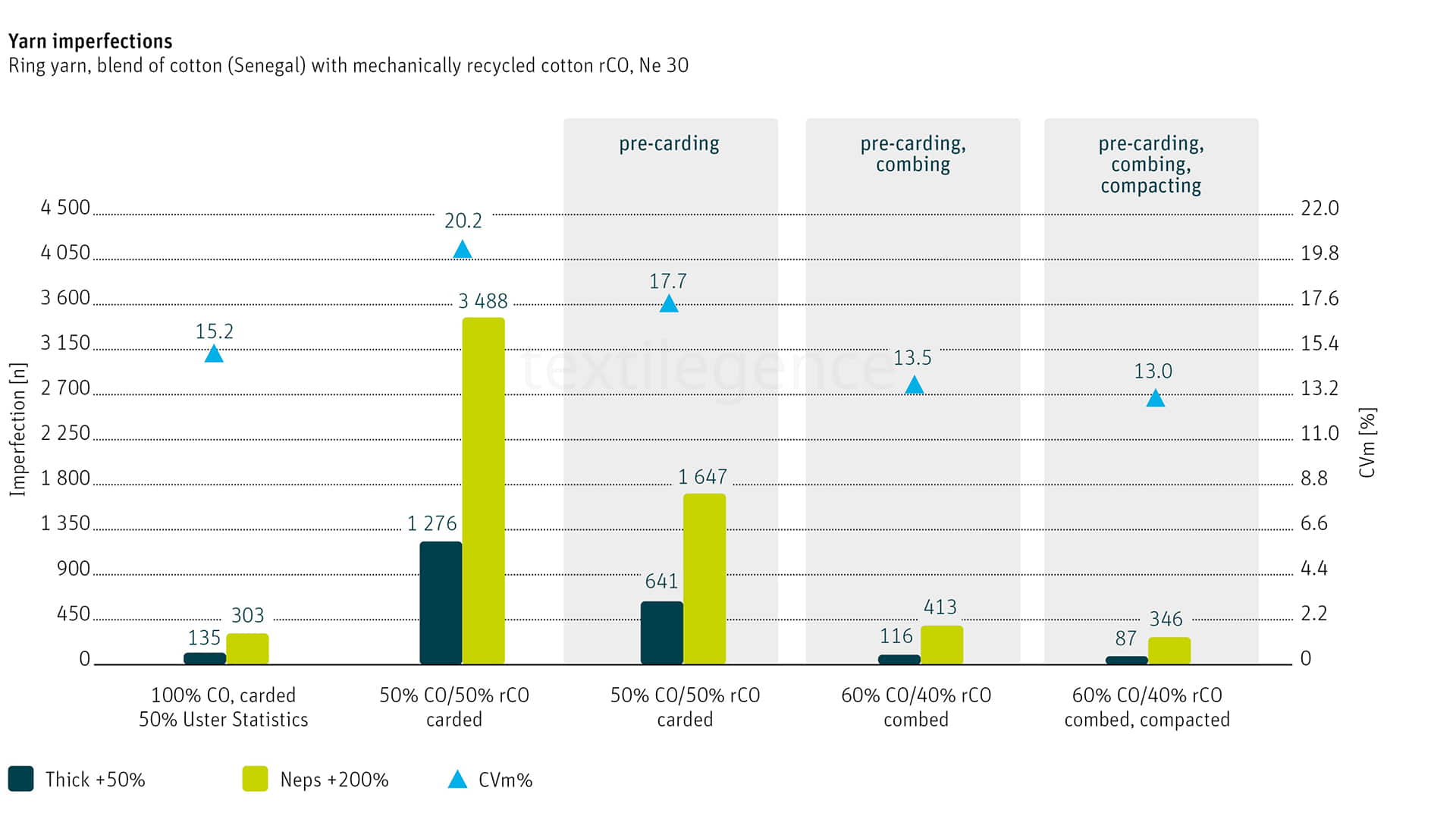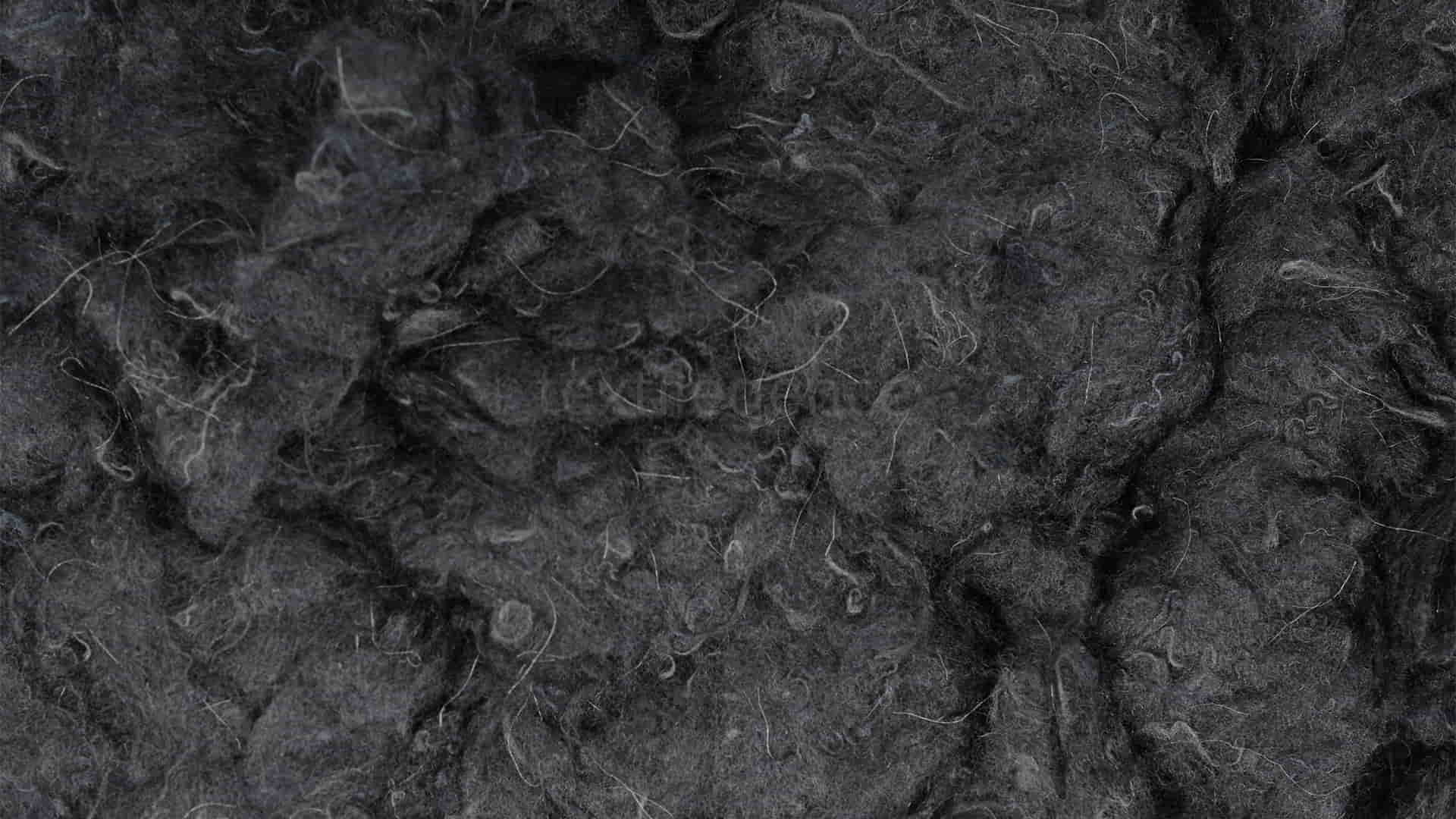Spinning fine ring yarns with high quality and a high share of recycled fibers is possible with the recycling toolbox of Rieter. Each of the three tools contributes to another yarn quality criterion. Pre-carding cleans the recycled fibers perfectly before they enter the spinning process, combing removes very short fibers and compacting adds the finishing touch to the yarn.
Improving the yarn quality of mechanically recycled cotton ring yarns remains an important requirement for many textile producers to meet their sustainability targets in the coming years. When the share of recycled fibers in blends with virgin cotton is increased, spinning becomes more challenging. The Global Recycling Standard (GRS) applies to products containing at least 20% recycled material. In the current Rieter trials, blends with up to 50% recycled material are processed to products of high quality.
Validated toolbox to improve yarn quality
The challenges of mechanically recycled cotton fibers in the spinning process are: opening degree (remaining yarn and fabric pieces), high short-fiber content, high nep count, and high variation from lot to lot (color and foreign fibers). Rieter supports its customers by offering three tools which help spinning mills to master the challenges and turn recycled material into quality yarns. To show the impact of the different tools, Rieter conducted a trial with a blend of 50% mechanically recycled fibers and 50% virgin cotton, spun into a ring yarn with yarn count Ne 30. A regularly spun carded cotton ring yarn, which corresponds to 50% Uster Statistics, serves as a reference.

Pre-carding for full cleaning
Tool number one is pre-carding – an additional cleaning step which translates into a significant impact. This step improves the spinning efficiency and quality of the yarns. Pre-carding, which can also be conducted in the spinning mill, means that the card C 77 can be connected directly to the tearing machine. This step has the twin benefits that recycled fibers will be fully cleaned from yarn pieces while the number of neps is reduced (Fig. 1). Spinners benefit from this by receiving only fully opened and cleaned fibers for their spinning line. Repeated trials have proven that the neps and thick places can be reduced by 50% in the ring yarn, while maintaining the same blend ratio.
Combing to improve yarn quality
The second tool is combing. Combing is a process step that is widely recognized for its ability to improve the quality of the fiber as it removes the most disturbing short fibers, neps, and impurities. As mechanically recycled cotton is particularly challenging due to its high short-fiber content, combing these fibers proves to be beneficial. In combination with the pre- carding process, it can basically lead to a yarn quality with improved imperfection and yarn quality comparable to a carded virgin cotton yarn.
The concern that a large proportion of the recycled fibers will be combed out is unfounded. With the comber E 90, Rieter offers a machine which optimally fits the needs for the best fiber processing on the market, resulting in top yarn quality and highest raw material yield. In addition, the comber noil blended with a low percentage of virgin fibers can be optimally spun into a rotor yarn.
Compacting to add the finishing touch
Tool number three is compacting the fiber blend. This tool gives the yarn the finishing touch. Compacting is especially beneficial for the tenacity and yarn abrasion, and in turn for the yarn hairiness. This improvement leads to good running performance in downstream processes and increases the lifetime of the finished products.
Rieter’s recycling toolbox enables spinning mills to produce mechanically recycled cotton ring yarns with up to 50% content of recycled fibers and a yarn count of Ne 30 at a quality level, which is comparable to carded virgin cotton ring yarns.



